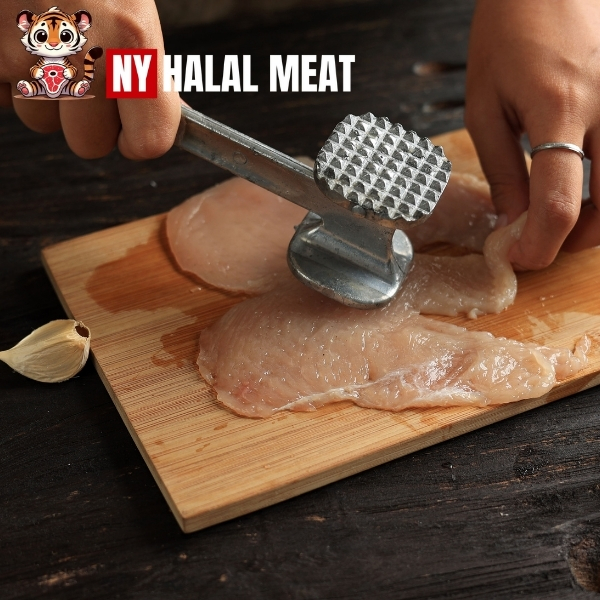Healthy Tenderize Meat Naturally
How to Tenderize Meat Naturally: Is It Even Possible?
Understanding the Process of Tenderizing Meat
Tenderizing meat involves breaking down tough muscle fibers, making it easier to cook evenly and enhancing flavor absorption. This process results in a tastier, more enjoyable dish, especially for tougher cuts like flank steak or round steak.
1. Include Acidic Marinades to Soak Meat and Make it Soft
Acidic ingredients like lemon, vinegar, or yogurt can help tenderize meat by breaking down its protein structure. Here’s how:
- Lemon Juice or Vinegar: These high-acid ingredients make excellent marinades, especially when combined with olive oil, herbs, and spices.
- Yogurt or Buttermilk: These dairy-based options work well for chicken and lamb, giving a soft texture while slightly altering the flavor.
Tip: Marinate for at least 1-4 hours, depending on the cut, to avoid overly mushy meat.
2. Use Pineapple or Papaya for Their Enzymes to Cut Through Toughness
Pineapple and papaya contain enzymes that break down tough fibers in meat, making them ideal for natural tenderizing:
- Pineapple: Fresh pineapple juice works wonders for tougher meats like pork. Avoid canned pineapple as it lacks active enzymes.
- Papaya: Fresh papaya or powdered papaya works well with beef cuts, providing a quick and effective tenderizing solution.
Warning: Avoid marinating for too long, as these enzymes are potent and can make the meat too soft.
3. Salt: The Natural Tenderizer
Salt draws moisture out of the meat, creating a brine effect that enhances tenderness. Here’s how to use salt effectively:
- Dry Brining: Sprinkle salt on the meat and let it sit at room temperature. The salt dissolves and is absorbed, making the meat tender and flavorful.
- Kosher or Sea Salt: Coarse salts dissolve slowly, allowing for optimal tenderizing.
4. Tenderize Meat with a Meat Mallet
Using a meat mallet or rolling pin is a simple and effective way to break down tough meat fibers. Here’s the process:
- Place the Meat on a Cutting Board: Cover it with plastic wrap to prevent mess.
- Pound Gently: Use light pressure to avoid over-tenderizing and creating a mushy texture.
5. Utilize Natural Oils and Fats Carefully
Natural oils like olive oil and coconut milk help marinate and tenderize meat while adding flavor. Try these options:
- Olive Oil Marinade: Combine olive oil, herbs, and lemon juice for a simple tenderizing marinade.
- Coconut Milk for Beef or Pork: Coconut milk adds moisture and flavor to tougher meats like beef and pork.
6. Slow Cooking for Tender Results
Slow cooking at low temperatures naturally tenderizes meat, especially for tougher cuts:
- Crockpot or Slow Cooker: Place meat with a small amount of liquid in a slow cooker, cover, and let it cook on low for several hours.
- Oven Braising: Place meat in a covered dish with liquid and cook at a low temperature for a few hours.
7. Using Alcohol for Better Meat Texture and Taste

Wine, beer, or cider add flavor while naturally tenderizing meat. This method is ideal for marinating beef, pork, or poultry.


